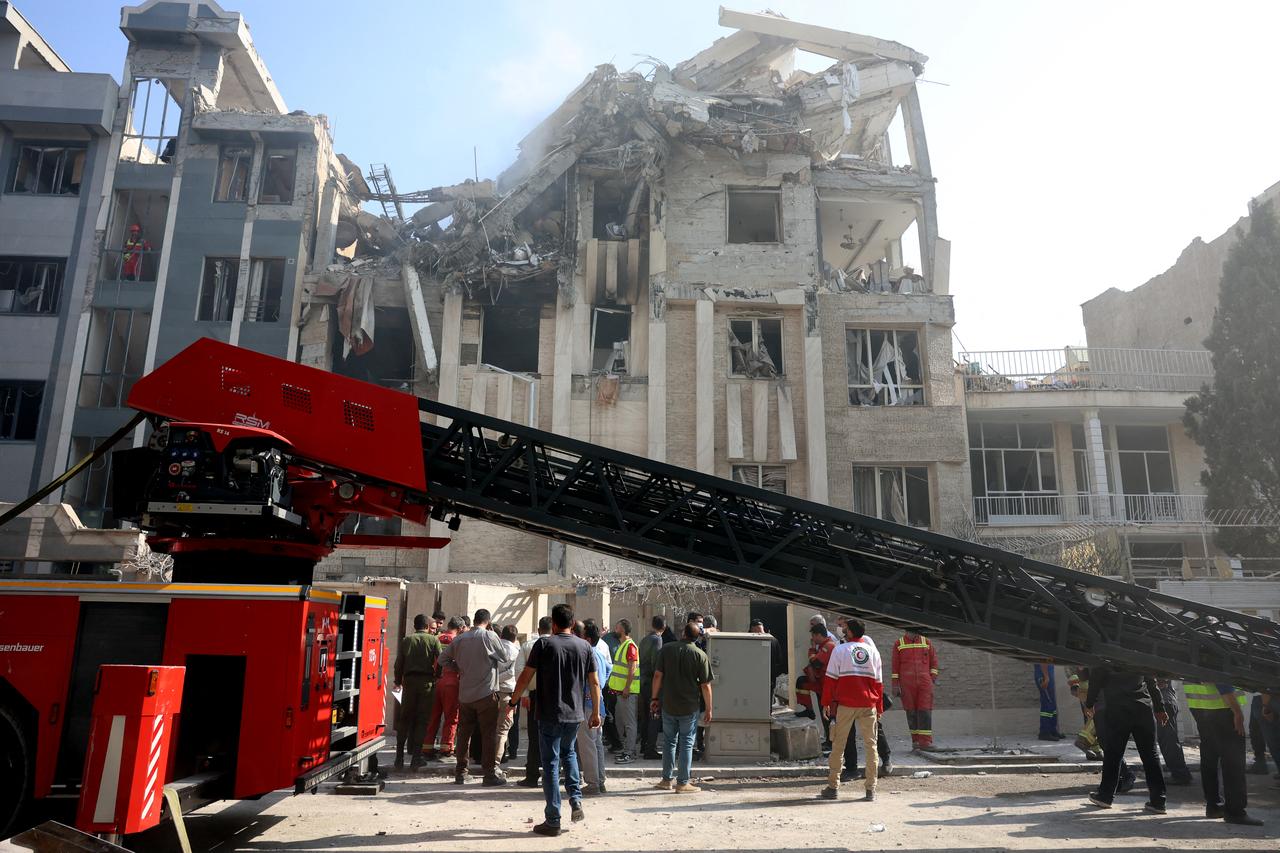
Iran announced it will not participate in indirect nuclear negotiations with the United States scheduled for June 15 in Oman's capital, following overnight Israeli attacks that killed the country's top military commanders and nuclear scientists.
According to Iranian state television, the decision comes after Israel conducted surprise strikes on multiple Iranian cities, including the capital Tehran, Tabriz, the Natanz nuclear facility in Isfahan, and the cities of Loristan and Kermanshah.
The nuclear talks, which had been suspended due to U.S. insistence that Iran completely halt its uranium enrichment activities, were set to resume this weekend. Trump's Middle East envoy Steve Witkoff was scheduled to meet with an Iranian delegation for the sixth round of discussions aimed at curbing Tehran's nuclear program.
The Israeli military said it killed Iran's "three most senior military commanders" in the overnight operation, naming Mohammad Bagheri, chief of staff of the armed forces; Hossein Salami, commander of the Islamic Revolutionary Guard Corps; and Major-General Gholam Ali Rashid, commander of the Khatam al-Anbiya Central Headquarters. The Israeli army reported that more than 200 fighter jets attacked over 100 targets across Iran.
Among the casualties were also prominent nuclear scientists, including Fereydoun Abbasi, former chief of the Atomic Energy Organisation of Iran and former parliament member, and Mohammad Mehdi Tehranchi, head of the Islamic Azad University. The building housing Tehranchi's residence, which also serves as home to several Iranian scientists, was severely damaged.
The strikes also hit civilian areas, with Iran's Tasnim news agency reporting that at least 50 people were injured and transferred to Chamran Hospital in northern Tehran, 35 of whom were women and children.
The scale of the current strikes marks a significant escalation from previous exchanges between Israel and Iran in 2024. Unlike earlier attacks that came with warnings, these strikes were conducted without advance notice and targeted multiple locations simultaneously.
Oman, which has been mediating the talks, condemned the Israeli strikes as a "dangerous and reckless escalation" that "violates the principles of international law" and "undermines the foundations of stability in the region."
Iran's Foreign Ministry accused Washington of being complicit in Israel's strikes and vowed revenge. Saudi Arabia's Foreign Ministry also condemned the attacks as "a clear violation of international laws and norms."
Jordan temporarily closed its airspace to all flights "in anticipation of any dangers resulting from the escalation happening in the region," according to the kingdom's civil aviation authority.
Analysts suggest Iran's military command structure remains intact despite the loss of key leaders, and retaliation is expected. The attacks have effectively suspended diplomatic efforts to resolve the nuclear standoff between Iran and the United States.